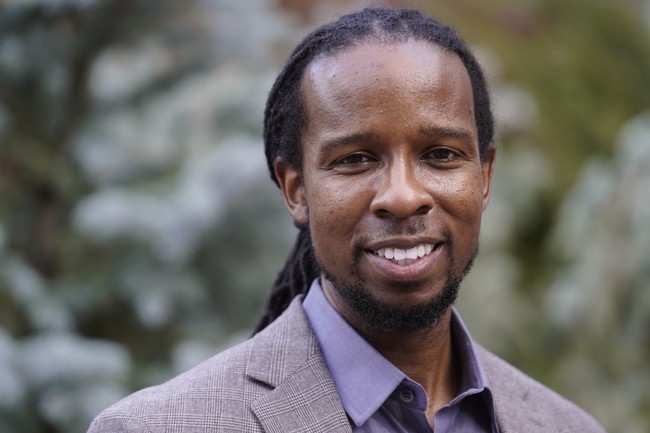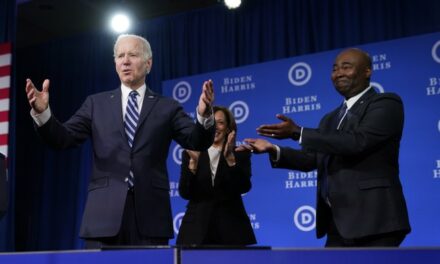We support our Publishers and Content Creators. You can view this story on their website by CLICKING HERE.

A study by the Network Contagion Research Institute (NCRI) and Rutgers University Social Perception Lab found that exposure to DEI materials made people more likely to perceive prejudice where none existed. Simply put, they appear to do more harm than good by increasing hostility between groups.
Advertisement
The studies reported herein assess a crucial question: Do ideas and rhetoric foundational to many DEI trainings foster pluralistic inclusiveness, or do they exacerbate intergroup and interpersonal conflicts? Do they increase empathy and understanding or increase hostility towards members of groups labeled as oppressors?
The study looked at three different types of DEI training, on religion, race and caste. For the experiment on race, they used material taken from books written by Ibram Kendi and Robin Diangelo. A control group was presented with a neutral text about the farming of corn.
- IbramX.Kendi/RobinDiAngelo Excerpt: “White people raised in Western society are conditioned into a white supremacist worldview. Racism is the norm; it is not unusual. As a result, interaction with White people is at times so overwhelming, draining, and incomprehensible that it causes serious anguish for People of Color.”
- ControlText (CornExcerpt): “America has just about 90 million planted acres of corn, and there’s a reason people refer to the crop as yellow gold. In 2021, U.S. corn was worth over $86 billion, based on calculations from FarmDoc and the United States Department of Agriculture. According to the USDA, the U.S. is the largest consumer, producer, and exporter of corn in the world.”
Rutgers students read one excerpt or the other and were then presented with a brief story: “A student applied to an elite East Coast university in Fall 2024. During the application process, he was interviewed by an admissions officer. Ultimately, the student’s application was rejected.”
Advertisement
Participants were then asked if the story demonstrated racism. Those who’d read the Kendi/DIAngelo passage were much more likely to attribute discrimination to the admissions officer even though race was never mentioned in that brief story at all.
…participants exposed to the anti-racist rhetoric perceived more discrimination from the admissions officer (~21%), despite the complete absence of evidence of discrimination. They believed the admissions officer was more unfair to the applicant (~12%), had caused more harm to the applicant (~26%), and had committed more microaggressions (~35%). The strength of these notable results motivated NCRI to test for replicability with an experiment on a national sample (n=1086 recruited via Amazon Prime Panels) of college/university students to ensure these findings were not an aberration of student attitudes on Rutgers campus. These findings showed similar, statistically significant effects (Appendix Figure 1).
Not only were these participants more likely to imagine racial bias where none was evident, they were ready to punish the admissions officer for this imagined bias.
Compared to controls who read about corn, respondents who read the Kendi/DiAngelo intervention were 12% more willing to support suspending the admission officer for a semester, 16% more willing to demand a public apology to the applicant and 12% more willing to require additional DEI training to correct the officer. Importantly, the intervention did not produce any measurable change in warmth or coldness towards persons of color (Appendix Figure 2). Educational materials from some of the most well published and well known DEI scholars not only failed to positively enhance interracial attitudes, they provoked baseless suspicion and encouraged punitive attitudes.
Advertisement
Thus, cancel culture seems to be a natural result of DEI training. In fact, the study went a step further and correlated the willingness to punish with Left Wing Authoritarian traits. The conclusion of the paper boils down the results into a 5-step “post-hoc process model” which is suggested but not proven by the research:
- Anti-Oppressive Intervention: DEI training rooted in anti-oppressive rhetoric introduces narratives that lead people to assume that certain groups are inherent oppressors and others as inherent victims.
- Increased Racial Suspicion: Exposure leads to hostile attribution bias, causing participants to see discrimination when there is no evidence that discrimination has occurred, driving racial prejudice, intergroup hostility, suspicion and division.
- Authoritarian Policing: This heightened suspicion triggers authoritarian policing tendencies, leading people to endorse surveillance and purity testing, strict social controls, and escalating responses from corrective to coercive.
- Punitive Retribution: Participants show greater support for extreme punitive measures against perceived oppressors as well as those seen as ideologically impure.
- Calls for More Interventions: The heightened punitive atmosphere feeds back into demands for more anti-oppressive DEI training, creating a self-reinforcing cycle of suspicion and intolerance.
Again, this study doesn’t prove this process is at work but anyone familiar with the student takeover of Evergreen State College in 2017 already knows that all of these steps did happen, not once but as part of a cycle that kept escalating. Some of this has also been present on campuses protesting Israel in the past year.
Advertisement
Finally, National Review has a story up about this and it contains this interesting mention of other outlets who decided not to cover these results.
Both the New York Times and Bloomberg were preparing stories on the findings, but axed them just before publication citing editorial decisions.
We just went through an election where DEI was a featured argument but somehow this isn’t news? I guess we’ll see if any other left-leaning outlets cover it.

 Conservative
Conservative  Search
Search Trending
Trending Current News
Current News 







